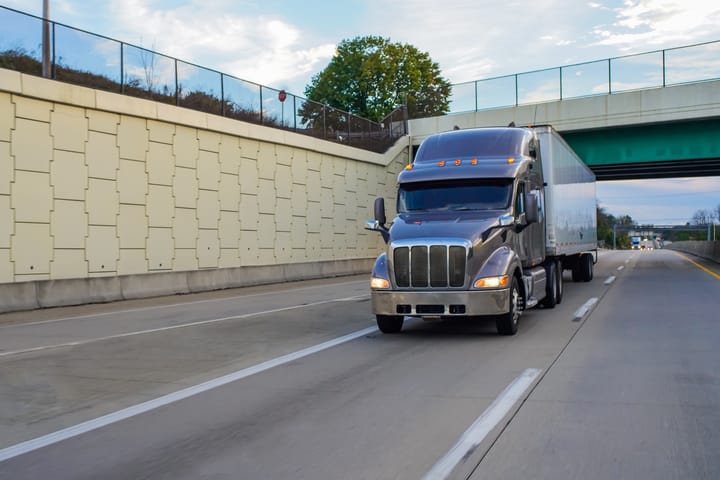💪 Are you fit enough to keep your CDL?

Fitness refers to a lot of things and is often open to interpretation. But what happens when an industry attempts to regulate it? And is there medical and safety merit to the interference? It's time to buckle up for today's edition of The Inside Lane.
Inside today's newsletter
💪 Driver fitness and their CDL
⛔ Reporting non-preventable incidents
🚚 Is a driverless future really a reality?
🚗 The rise in commercial vehicle demand
⭐ Driver is rescued from flipped tanker

What fitness level must drivers maintain for licensing?
The FMCSA has issued updated guidance to help medical examiners assess truckers’ fitness to drive. Changes to the Code of Federal Regulations (49 CFR Part 391, Appendix A) are designed to remove “outdated” information - but are important for fleets to understand as they affects drivers’ ability to be certified "medically fit" for a CDL.
What has changed? The updates affect 11 of 13 medical criteria, but to differing extents. Most importantly, the FMCSA has clarified rules for drivers who have lost limbs, suffer from hypertension or who have had a blackout at the wheel. This could require a more case-by-case approach to certification.
How might this impact fleets? The FMCSA stressed that the Medical Examiner’s Handbook is “strictly advisory” and not a legally binding document. However, the organization says lying or omitting information could invalidate an examination and the resulting certification.
Find out the actual parameters in Land Line.

🙂 GOOD DAY:
A Good Samaritan driver in Wasatch County, Utah spotted an overturned oil tanker in barely-visible conditions and saved its driver. Tyler Mahoney was pulled over to wait out the white-out snow conditions when he saw the vehicle and rescued its driver.
Read the full story at Jalopnik.
🙁 BAD DAY:
The latest tender rejection rates shows January’s surge of bad weather has hit truckers hard. Rates jumped to over 5% last week - a level usually only seen during the Christmas and New Year break.
Find out the reasoning at Freight Waves.

Why fleets must report non-preventable incidents
Experts have reminded fleets to report all non-preventable incidents in the FMCSA’s DataQs crash review system, warning that not doing so could impact their safety score.
Non-preventable crashes are not counted as part of carriers’ CSA Safety Measurement System score. By not logging them, fleets could find incidents are assumed to be preventable by users of the system -- including insurers, brokers, shippers and auditors.
Read up on the benefits of this reporting at OverDrive.
Is it finally a commercial vehicle dealers' market?
Dealers’ commercial vehicle stock levels are recovering after two years of limited supply though prices remain high, according to Work Truck Solutions. Average new vehicle prices increased by 6.5% in the 12 months to Q4 2024, while used values dropped by 1.8% and inventories shrank by 12.1% during the same period.
Check out the stats at Automotive Fleet.
A driverless future: Is it science fiction, or a reality?
The next 25 years could redefine trucking as alternative powertrains and autonomous vehicles shake up industry norms. Industry consultants at Schwartz Advisors have set out their predictions for a fast-changing freight sector, including wildly different-looking electric and autonomous cabs, OEMs’ “trucking as a service” opportunities once the driver is removed, and what this means for the aftermarket.
Join the discussion at Truck News.

- Hasty exit: Administrator Hutcheson to leave FMCSA
- Braking legislation: Light vehicle version in review
- Postal charges: USPS debuts first electric fleet
- Alternative fuels: The tax benefits for fleets
Quote of the Day:
“Every crash that [FMCSA] have on you is considered a preventable crash, every roadside inspection they have on you is considered accurate data if you’re not DataQ-ing.” -- Rick Gobbell, Gobbell Transportation Safety
What are the biggest hurdles to growth for your fleet business? Whether you are an owner-operator or manage a bigger fleet, striking the right balance of investing and conserving it vital to success.
I'd love to hear how you make it work.






Comments ()